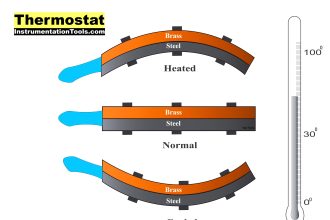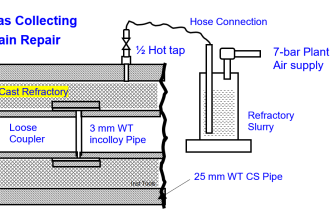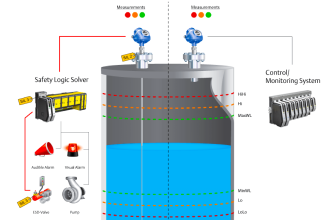Gas Solid Chromatography Questions & Answers
1. Gas-solid chromatography is based on which of the following processes?
a) Partition of the analyte between a gaseous mobile phase and a stationary liquid phase
b) Adsorption of gaseous substances on solid surface
c) Ion exchange
d) Large molecules cannot penetrate through the gel
Answer: b
Explanation: Gas-solid chromatography is based on the adsorption of gaseous substances on a solid surface. It is useful for the separation of rare gases.
2. Which of the following components cannot be retained by gas-liquid columns but can be separated by using gas-solid chromatography?
a) Formaldehyde
b) Hydrogen sulphide
c) Benzene
d) Carbon dioxide
Answer: b
Explanation: Hydrogen sulphide cannot be retained by gas-liquid columns. It can be separated using gas-solid chromatography.
3. Which of the following is not an advantage of gas-solid chromatography?
a) Increased column life
b) Can be used for separation of rare gases
c) Leads to semi-permanent retention of analyte
d) Ability to retain some components that cannot be easily retained by other gas chromatography method
Answer: c
Explanation: Gas-solid chromatography leads to semi-permanent retention of analyte. Hence, it is used for limited applications.
4. The distribution coefficients of Gas-solid chromatography are greater than that of Gas-liquid chromatography.
a) True
b) False
Answer: a
Explanation: The distribution coefficients of Gas-solid chromatography are greater than that of Gas-liquid chromatography. The stationary phase is a solid particle.
5. Which of the following columns can be used in Gas-solid chromatography?
a) Open tubular column
b) Analytical column
c) Separation column
d) Guard column
Answer: a
Explanation: Open tubular column can be used in Gas-solid chromatography. Analytical/separation column and guard column is used in liquid chromatography.
6. Which of the following is not an advantage for the conversion of packed columns into wide bore capillaries?
a) Longer retention times
b) Longer life
c) Higher efficiency
d) Greater inertness
Answer: a
Explanation: Wide bore capillary has shorter retention time. It is an advantage. It is undesirable to have longer retention time.
7. Which of the following is not a disadvantage of gas-solid chromatography?
a) Strong retention of polar solutes
b) Lifetime is short
c) Occurrence of catalytic changes
d) Cannot be used for very wide range of components
Answer: b
Explanation: The lifetime of gas-solid chromatography is long. It can be used for geometrical isomers.
8. Gas-solid chromatography can be used only for separation of certain low molecular weight gaseous species.
a) True
b) False
Answer: a
Explanation: Gas-solid chromatography can be used only for separation of certain low molecular weight gaseous species. This is because in gas-solid chromatography, semi-permanent retention of analyte only takes place.
9. Which of the following is a special adsorbent used in gas-solid chromatography?
a) Molecular sieves
b) Silica gel
c) Alumina
d) Starch
Answer: a
Explanation: Molecular sieves are a special adsorbent used in gas-solid chromatography. It is used in open tubular columns.
10. Which of the following properties of molecular sieves make it ideal for exclusion mechanism of separation?
a) High thermal stability
b) Large inner surface area
c) Variable framework charge
d) Ability to distinguish materials on the basis of their size
Answer: d
Explanation: Molecular sieves have the ability to distinguish materials on the basis of their size. This property can be used in separating molecules of linear structure from bulky ones.
















